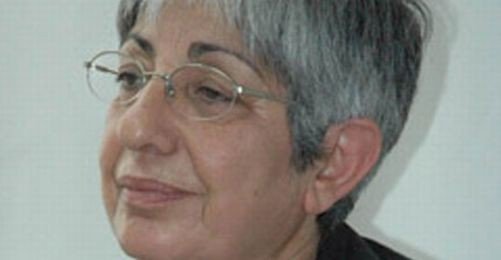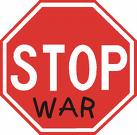"Cross-Border Operations Damage Turkey's Economy"
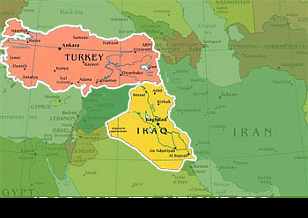
"We do not know what the government's "Package for the Solution of the Kurdish Question" is. The only things we have seen so far are military operations and violence. This issue will not be solved with violence; only Kurds can get rid of the PKK. That this will only be possible if there is a political solution must be accepted."
This is how Ahmet Acar, president of the Businesspeople's Assocation in Erbil sees the current relations between Turkey and Northern Iraq; he argues that the operations carried out by the Turkish Armed Forces are reducing the economic activity of Turkey in the region.
Other countries taking over
Acar said that people in the Kurdistan regional administration were not being affected by the operations, and that the places of Turks leaving the area were being taken by businesspeople from countries like China, Japan and South Korea.
"The average annual income of a person in the region is around 10,000 dollars. Education and health services are quite developed. The country really being damaged by the policy of violence is Turkey."
According to Acar, many companies from Turkey are active in Northern Iraq, primarily in the building industry, but also in areas like textile production and bread factories: "According to data from 2006, there were around 15,000 workers and nearly 200 companies from all over Turkey in the region.
Investment considered "treachery" by Turkey
Although, so Acar, the Kurdish regional administration did not exert any pressure on Turkish companies, these companies were labelled as "traitors" by Turkey and withdrew.
According to data from the Erbil Chamber of Commerce, 23 Turkish companies stopped working in the area in the first two weeks of October. According to the Turkish Contractors' Union, companies from Turkey have earned around five billion dollars in Iraq since 2003. However, Tahir Telllioglu, both deputy president of the Turkish Federation of Construction Contractors and president of the Ankara Construction Contractors' Association, has said: "Contractors should leave Iraq immediately. As of today, whoever puts one stone onto another in Iraq is betraying their country."
Acar said that it was widely believed in Northern Iraq that the pro-Kurdish Democratic Society Party (DTP) of Turkey would not be able to take steps towards a solution of the Kurdish question. He added, "The DTP MPs were not given this opportunity. There are people both in Turkey and in the Kurdish movement who are profiting from the policy of violence, and the DTP has not been able to distance itself from these sections."
Union of parties
Acar pointed out that there were Kurds participating in politics without resorting to policies of violence; he announced that the Participant Society Party (KADEP), which he is a founding member of, and the Rights and Freedoms Party (HAK-PAR), both parties in Turkey, would unite in the near future.
"We demand a federal, liberal and democratic solution to the Kurdish question. We reject violence coming from any quarter."
Acar called on the government and the media to stop seeing Mesut Barzani, president of the Kurdistan regional administration, as an enemy. It was, he said, important to develop relations with Barzani:
"There are millions of Kurds living in Turkey, and these people have relatives and contacts in that region. The (ruling) Justice and Development Party (AKP) must see what effect its hostile policy towards Northern Iraq is having on these people." (EÜ/TK/AG)
SOCIAL GENDER EQUALITY
Women and Journalists Hand in Hand against Violence
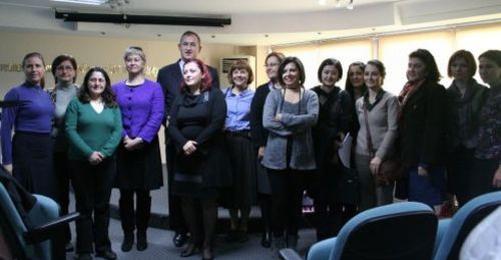
EUROPEAN COMMISSION AGAINST RACISM AND INTOLERANCE
Discrimination and Racism in Turkey Fuel Concern

Unionists in Northern Cyprus Protest PM Erdoğan
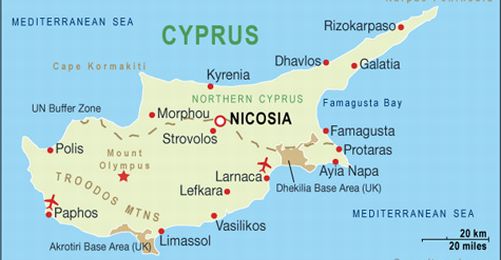
Policeman who Beat Juvenile Claimed Self-Protection
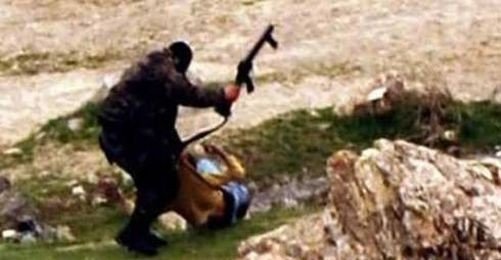
HRANT DINK MURDER
Court fully Protects Istanbul Police
